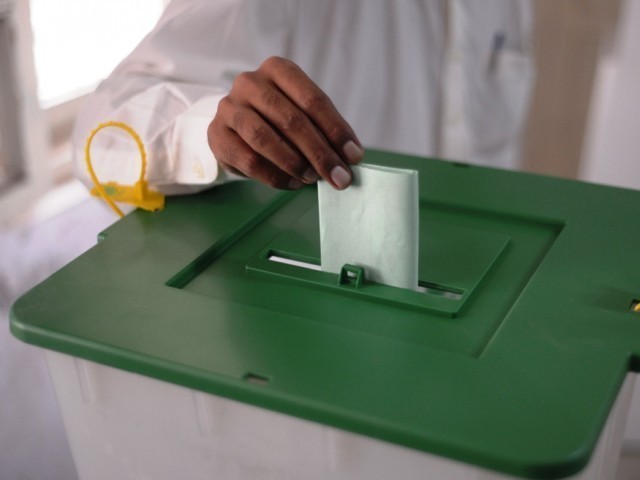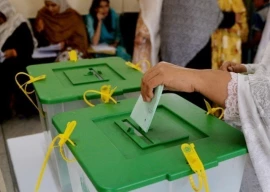
The year 2024 heralds a global wave of elections, with approximately 49% of the world’s population in over 64 countries gearing up to cast their votes. Yet, it is not merely the act of voting itself that distinguishes these elections from the previous ones; rather, it is the process leading up to them and the subsequent outcomes that set them apart.
Historically, Pakistan’s electoral process has always been marred by allegations of irregularities and lack of fairness. However, in recent times, the advent of social media and technology has exposed the darkest and ugliest of aspects of this process to the 55 million young voters already wary of the whole democratic process.
In Pakistan, the youth constitute a significant segment of the population, holding immense potential to drive positive change and shape the nation’s future. However, disillusionment with the existing democratic process has led many young, educated Pakistanis to seek opportunities abroad, undermining the country’s ability to harness their talents and energies.
Brain drain trend
As discussed in my article last year titled “Capitalising on human capital”, recent years have witnessed a notable trend of young, educated Pakistanis migrating abroad in search for better livelihood opportunities and a more conducive environment for personal and professional growth.
According to recent figures, over 860,000 Pakistanis left the country to look for better job opportunities abroad during 2023, the highest number since 2015. The most striking feature of this trend is the exodus of highly skilled professionals who failed to secure a decent living and have no confidence in the system to deliver.
Addressing disillusionment
The exodus of young, educated Pakistanis underscores a deep-seated disillusionment with the existing democratic process and governance structures. Perceived corruption, lack of transparency and disconnect between elected representatives and the electorate have eroded trust in Pakistan’s democratic institutions, driving many talented individuals to seek opportunities elsewhere.
To reverse this trend, it is imperative to restore faith in the democratic process and demonstrate that meaningful change is achievable through active civic engagement.
Read: Youth, women turn out in numbers
Most mainstream parties rely on so-called “electables” to ensure their success and are not willing to take chances on the young generation. Central to revitalising Pakistan’s democratic landscape is the active engagement and participation of the youth.
By empowering young people to participate in electoral processes, political decision-making and community initiatives, we can harness their energy and idealism to drive positive change.
Initiatives such as voter education programmes, youth-led advocacy campaigns and grassroots mobilisation efforts can help cultivate a culture of civic engagement and instill a sense of ownership in shaping the country’s future.
Ensuring transparency
The key to restoring confidence in democratic institutions is ensuring transparency and accountability in the electoral process and forming a new government post-election. This entails robust mechanisms for electoral oversight, including independent monitoring of voting procedures, verification of ballot counts, and adjudication of electoral disputes.
Moreover, elected representatives must be held accountable for their actions, with mechanisms in place to track their performance, fulfill campaign promises, and address concerns of their constituents.
In the digital age, technology presents unprecedented opportunities for democratising governance and enhancing civic participation. By leveraging digital platforms for voter registration, election monitoring, and public engagement, we can foster greater transparency, efficiency and inclusivity in the democratic process.
The use of long overdue electronic voting system and voting rights for overseas Pakistanis (mostly youth) will give them a sense of connection and belonging back to their homeland.
Revamping manifestos
In the lead-up to the 2024 elections, the political landscape was abuzz with promises, manifestos and rhetoric aimed at capturing the hearts and minds of voters.
However as revenue collection dwindles, economic growth stagnates and Pakistan grapples with stringent conditions of an IMF programme, the promises made by political contenders appear increasingly divorced from the challenges at hand. These empty promises cannot appeal to the youth who are well versed with ground realities and demand a more realistic approach to overhaul the ailing economy.
Against this backdrop, it is imperative to engage youth in the democratic process, instilling confidence in their ability to effect meaningful change and holding representatives accountable for their actions.
Let’s adopt these strategies that have worked globally for empowering youth participation and ensuring transparency and accountability in the upcoming democratic transition, thereby ensuring inclusive and sustainable development.
The writer is a financial market enthusiast and is attached to Pakistan’s stocks, commodities and emerging technology
Published in The Express Tribune, February 12th, 2024.
Like Business on Facebook, follow @TribuneBiz on Twitter to stay informed and join in the conversation.






1719053250-0/BeFunky-collage-(5)1719053250-0-270x192.webp)














COMMENTS
Comments are moderated and generally will be posted if they are on-topic and not abusive.
For more information, please see our Comments FAQ